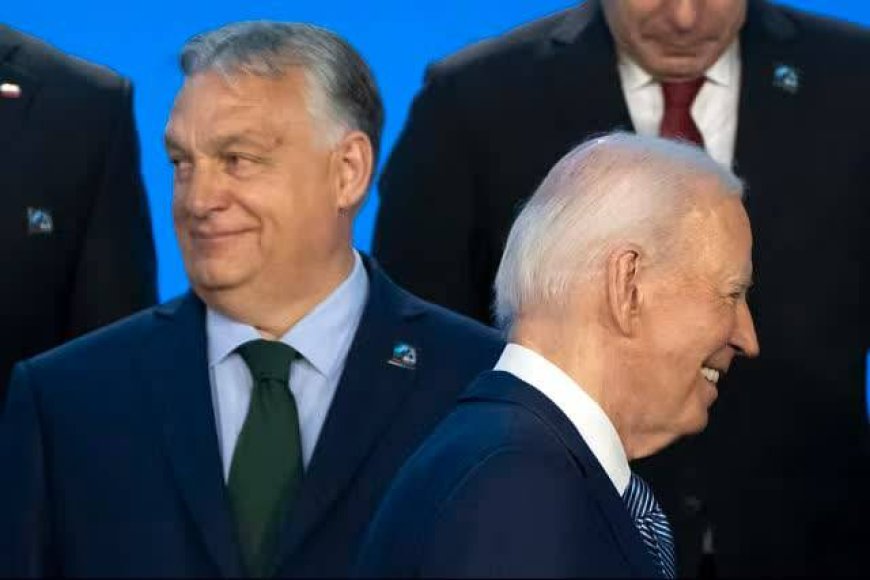Orbán's Diplomatic Tightrope: Courting Russia, China, and the West in the Quest for Influence

Hungarian Prime Minister Viktor Orbán, assuming the mantle of the rotating presidency of the European Union, embarked on his tenure with the grandiose slogan of "A Great Europe Again." This ambitious proclamation was swiftly followed by a high-stakes diplomatic tour, commencing in Ukraine and Russia and culminating in the United States. Orbán's itinerary, fraught with political nuance and diplomatic tightropes, was emblematic of his aspiration to position Hungary as a pivotal player on the global stage.
Orbán's first moves as EU president were unconventional, marked by a direct engagement with the contentious issue of Ukraine. By positioning himself as a potential mediator, Orbán sought to bolster Hungary’s prestige. However, his actions immediately drew the ire of fellow European nations. The instant he conferred with President Vladimir Putin in Moscow, it became clear that Orbán’s stance was not aligned with the broader European consensus. EU officials quickly distanced themselves, stating that Orbán's views did not reflect the Union’s official position. Even Ukrainian President Volodymyr Zelenskyy dismissed Orbán's mediation efforts, emphasizing the lack of a unified European perspective.
Despite the cold reception from Europe and America, Orbán persisted, maintaining his course and completing his visit to Russia. This rendezvous held significant value for both nations. For Hungary, it was an assertion of its intent to pursue an independent foreign policy within the international system, aiming for enhanced prestige and bilateral gains. The economic ties between Hungary and Russia, particularly concerning their shared stance on the Ukraine conflict, further underscored Orbán’s motives. Such actions have understandably led to a pervasive mistrust within Europe, with concerns that Hungary might disrupt collective efforts to aid Ukraine—a scenario that has unfolded repeatedly.
Following Russia, Orbán’s diplomatic journey took him to Beijing, a trip that again met with European criticism and American unease. In China, Orbán endorsed the six-point peace plan between China and Brazil, presenting it as a viable solution. He lauded China’s role as a key power in the international arena and underscored Hungary’s strategic need for Chinese investment, projecting the creation of approximately 25,000 jobs through these investments. This partnership is mutually beneficial: China can navigate European trade regulations via Hungary, retaining access to the European market, while Hungary receives crucial technological and financial investments, positioning itself as a vital conduit for Chinese economic interests.
Despite European and American protests, Orbán’s decisions, firmly rooted in Hungary's national interests, reflect his ambitious vision. However, these decisions bear potential long-term consequences, both positive and negative. While ostensibly promoting peace under the guise of the Russia-Ukraine conflict, Orbán’s realpolitik agenda focused on strengthening bilateral ties with Russia and China, aiming for tangible economic and strategic benefits.
Orbán's subsequent visit to Washington for the NATO summit underscored the stark contrast in international alliances. At the summit, NATO leaders, resolutely backing Ukraine, implicitly criticized Orbán’s eastern engagements. NATO’s clear message was one of unwavering support for Ukraine, signaling to Russia—and by extension to China and Hungary—that peace initiatives must consider Western interests, particularly those of the United States.
In conclusion, Orbán's tenure as the EU’s rotating president has been marked by ambitious but controversial endeavors. While he has managed to align Hungary’s actions with its national interests, his broader aspiration to assert a significant role in the international system remains unfulfilled. To achieve his grand vision of a "Great Europe Again," Orbán may need to recalibrate his diplomatic strategies and foster more harmonious relations with Western powers, ensuring that Hungary’s ambitions do not come at the cost of its European alliances.













































